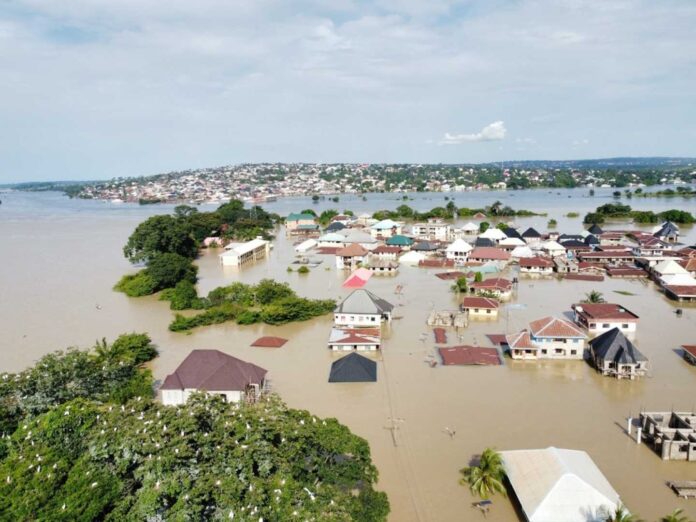Poor preparation and lack of adequate measures fit worsen the devastation caused by flooding in Nigeria, especially as climate change continues to intensify extreme weather events. Recent heavy rains and flooding in west and central Africa, including Nigeria, have highlighted the severe impact of climate change on the region. According to a study by the World Weather Attribution (WWA), these extreme weather events, which killed over a thousand people and displaced hundreds of thousands, were exacerbated by climate change.
The WWA study indicated that climate change has made extreme rainfall events more frequent and heavier in the region. For instance, Sudan can now expect weather events like this every three years, with the rainfall being 10% heavier due to climate change. This trend is also observed in Nigeria, Niger, Cameroon, and Chad, where similar heavy rains occurred in 2022 and are expected to recur every five to 10 years.
The repeated flooding strains the capacity of communities to respond and recover. Experts like Joyce Kimutai note that the frequent occurrence of these floods deepens existing vulnerabilities within communities, making it harder for people to cope with each new disaster. In Nigeria, many areas affected by the 2022 floods had not fully recovered before the latest floods hit, demonstrating a cyclical pattern of vulnerability.
Additionally, the economic and health impacts are significant. Flooding has led to the spread of diseases like cholera, which is particularly devastating in low-income regions with limited healthcare resources. The lack of insurance and financial resources to rebuild homes and infrastructure further complicates the recovery process. Experts suggest that micro-insurance schemes and climate-proofing homes could be part of the solution, but these measures must be implemented carefully to avoid displacement and what is termed ‘climate gentrification’.
The need for collective action and better preparation is underscored by the fact that individual efforts alone are insufficient to mitigate the effects of climate disasters. Governments, communities, and international organizations must work together to strengthen resilience and implement effective mitigation strategies to reduce the impact of future floods).


